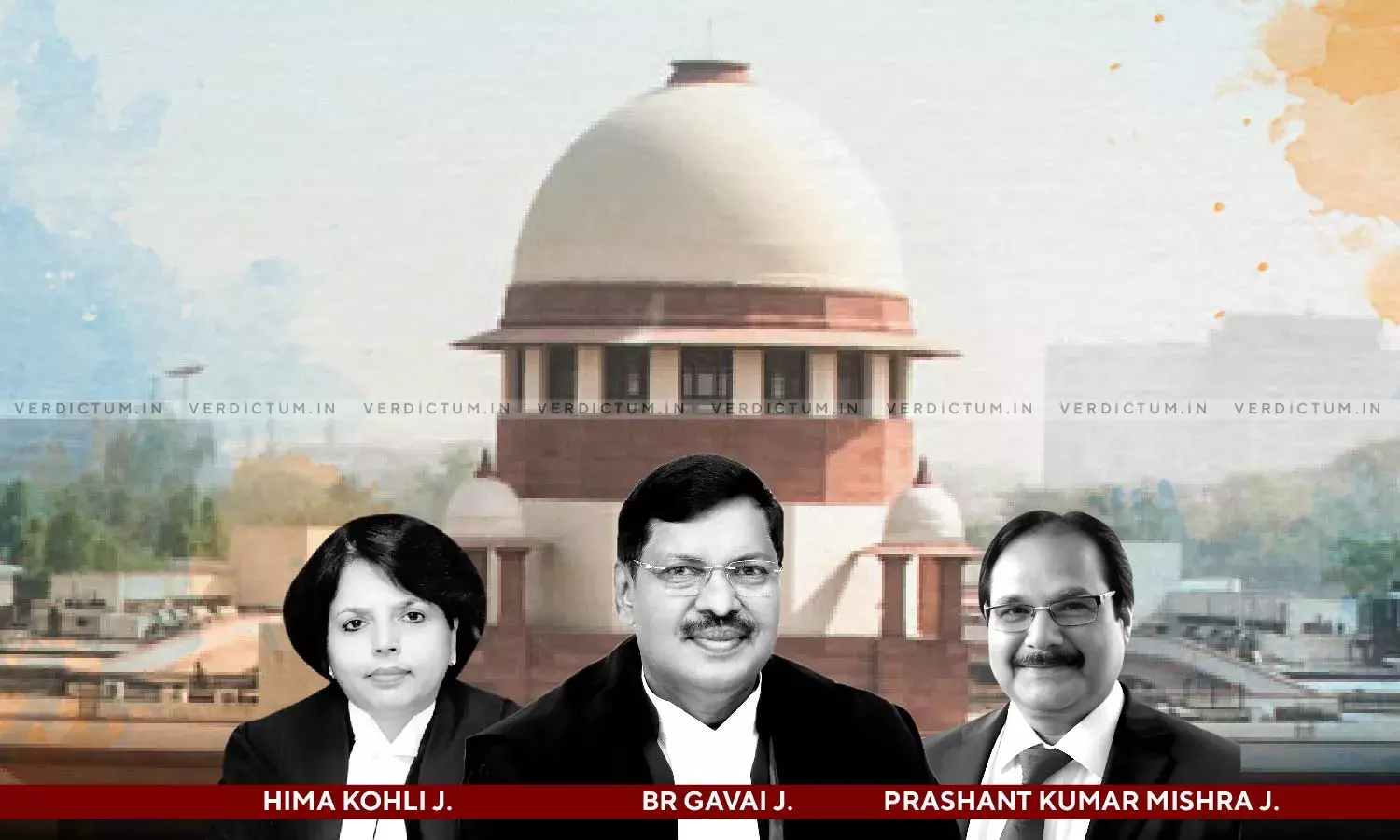Sections 15 & 16 HSA | Wife Of Pre-Deceased Son Does Not Have First Right To Claim Share In Her Mother-In-Law’s Share In Joint Family Property: SC

The Supreme Court held that the widow of pre-deceased son does not have the first right to claim a share in her mother-in-law's share of the joint family property, as per Sections 15 and 16 of the Hindu Succession Act (HSA).
The Court was considering an appeal filed against High Court judgment that had held that wife of a pre-deceased son was entitled to 1/7th share out of 1/8th and 1/16th of her mother-in-law’s share in the disputed properties.
“A combined reading of Section 15(1)(a) and Section 16 of the Act would make it manifest that the property of a female Hindu dying intestate shall devolve, firstly, upon the sons and daughters (including the children of any pre-deceased son or daughter) and the husband. Therefore, the plaintiff being the widow of the pre-deceased son does not have the first right or entitlement to receive any share in the share of her mother-in-law”, the Bench comprising Justice B.R. Gavai, Justice Hima Kohli and Justice Prashant Kumar Mishra held.
Advocate Balaji Srinivasan appeared for the Appellant (Sachidhanandam) and Advocate K Krishna Kumar appeared for the Respondent (Vanaja).
Nallathambi Chittiar was the father of Elango whose property was disputed in the case. Elango was married to Vanaja who was the Plaintiff in the Original Suit. The widow of Nallathambi Chettiar (Plaintiff’s Mother-in-law) was the First Defendant along with her son Sachidhanandam (Second Defendant) in the Original Suit. Vanaja’s suit for partition was allowed by the Trial Court allotting 1/8th share in the disputed properties listed in Schedule B C and C1 property.
But the First Appellate Court allowed the appeal of the Sachidhanandam. The Court noted that the Plaintiff’s Mother-in-law was entitled to 1/16th share in Schedule B and C1 properties. The Court also gave liberty to Vanaja to file under Order XX Rule 12 of the Civil Procedure Code (CPC) regarding mesne profits concerning Schedule C1 and B. The High Court held that Vanaja was entitled to 1/7th share out of 1/8th and 1/16th of her mother-in-law’s share in the B, C, and C1 schedule properties. Aggrieved, Sachidhanandam approached the Apex Court challenging the judgment of the High Court.
The Court observed that the property of a Hindu female dying intestate is guided by the provisions of Sections 15 and 16 of HSA. The Court observed that Section 16 prescribes the order of succession for the distribution of the property.
“Sections 15 and 16 of the Act provide that the property of a female Hindu dying intestate shall devolve according to the rules set out in Section 16. Section 15(1)(a) provides that such devolution shall be firstly, upon the sons and daughters (including the children of any pre-deceased son or daughter) and the husband. The rule for distribution of the intestate property of a female Hindu and order of succession is provided under Section 16 of the Act according to which, the order of succession among the heirs of a female Hindu referred to in Section 15 shall be firstly, as per rule 1 thereof, among the heirs specified in sub-section (1) of Section 15 of the Act”, the Bench noted.
The Court affirmed the High Court's opinion that the disputed properties were joint family properties. However, the Court noted that the High Court erred in the application of Sections 15 and 16 while granting 1/7th share out of 1/8th and 1/16th of her mother-in-law’s share.
Accordingly, the Court allowed the Appeal and set aside the impugned Judgment.
Cause Title: Sachidhanandam (Through His LRs) v E. Vanaja And Ors. (2023 INSC 984)

